Big Boy Season: The Design of Titanfall 2
By gamer_152 11 Comments
Note: The following article contains major spoilers for Titanfall 2.
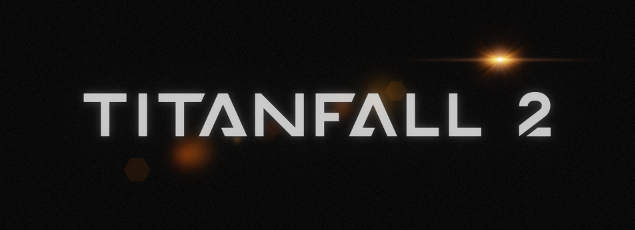
Titanfall 2 is the best shooter I've played in years. Respawn Entertainment's military sci-fi binds together threads of silky movement, and intense, ever-changing combat to create a fabric of uninterrupted flow. A rich buffet of player actions means that wherever you are on the map, whichever items you have at your disposal, there are almost always multiple navigational and strategic options on the table. Whether you're a Titan: one of the oil-stained mechs that can tear through a squad without breaking a sweat, or a pilot: the swift, acrobatic soldiers on the ground, the play remains compelling.
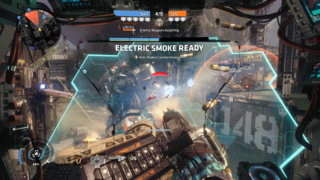
Most of the slick features that Titanfall 2 implements, it didn't invent, but that doesn't mean they contribute anything less to the experience. It's typically not the most original games that are the most popular, but the titles that have sat back and watched the medium's emerging trends. They take some time to chew over which concepts and approaches worked for other devs and which didn't, panning out the silt and leaving only the gold. There's a balance to be struck between imitation and invention; just crib mechanics from other games and audiences will ask where the originality is. However, by toeing the line between the novel and the known, Titanfall made a name for itself.
Here, I'm going to be talking about a lot of mechanics that don't originate in Titanfall 2, but I'm not interested in recording a history of first-person shooters; I want to talk about why Titanfall 2's design invigorates. Here are a few design decisions Respawn made that paid off with interest:
1. Suitable Story
Single-player modes in AAA are typically a breeding ground for ludonarrative dissonance. Stories tell us that war is hell while play tells us that war is a fun way to chill out after work. A character may die, and the tone of the writing will darken, but the mechanics will remain just as focused on the upbeat. Most action gameplay is aiming to fill the audience up with empowerment and a sense of mastery, and so a complementary story for that play should be about the same emotions; Titanfall 2 contains that breed of story. Sure, it takes place during a military conflict and it'll never entirely rid itself of the seriousness that brings, but it's as light a take on the topic as you're going to get.
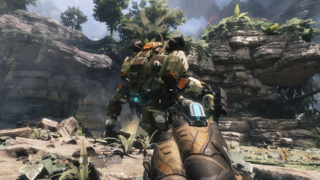
Instead of trying to be a Band of Brothers or a Black Hawk Down, Titanfall 2 is more like if Dreamworks had a creative hand in CoD, and I mean that as a compliment. The story follows Jack Cooper, an optimistic neophyte who dreams of becoming a Titan pilot. When his commanding officer is wiped out in a freak accident, he's the only one left to take over his robot ally: BT-7274. It takes a few dances with the antagonists for Jack to find his feet as an operator, but by the time that the Militia recovers him and BT, they are so in sync with each other that Jack's the only one that can lead the Titan into enemy territory and save the day.
Titanfall 2's story isn't Mariana deep, but you can see how suitable it is for an action game: Jack and BT's motivation, progress, and relationship involve improving their combat proficiency which is also what motivates us as the player and is how we measure our progress. The game aligns our interests and our journey with those of the characters. Cooper suddenly having to take on a mission above his station also helps explain why we might still be feeling out our tools even though we're playing a soldier in active duty.
2. Level-Exclusive Mechanics
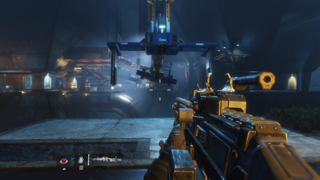
Discussions about matching play to story pop up fairly frequently, but in the broader gaming community, we don't talk enough about matching play to the environment. In most of Titanfall 2's stages, the nature of the spaces we occupy is embodied in mechanics unique to the current level. When we're on an assembly line, we must platform between the conveyer belts and dodge heat elements and robotic arms. In the experimental research facility, we get a clicker that allows us to flash back and forth through time. In the construction site, we can swivel cranes around to create paths between surfaces.
Settings aren't just more rooms in which to shoot troops; we interact with them on a functional and thematic level. And because new styles of play are baked into each level, those stages all have individual personalities. Changing up the play level by level also keeps it from stagnating, and appropriately, the narrative apex of the game is the moment where the protagonist is the most passionate about his battle. After the IMC string up BT and take an axe to his body, BT gives us a parting gift: the Smart Pistol. It's a homing handgun that can dispense a soldier with a single shot. We immediately use it for vengeance, sprinting and sliding through the IMC base, laying waste to them at incredible speed.
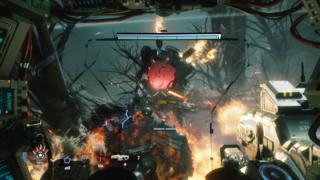
There are more shooter campaigns than I can count that treat their story mode as a PvE version of the multiplayer. Titanfall 2 goes further, thinking about what forms of play could only happen when it has a sole audience member. Having the player blow up a whole armoury of mechs in a row or spontaneously travel through time would be exceedingly tricky to pull off in a competitive environment, but such features fit like peas in the pod of the campaign mode.
3. Power Weapon Distribution
Titanfall 2's multiplayer might leave me closer to the edge of my seat than even the single-player. How Respawn slots the Titans in alongside the foot soldiers is particularly inspired. Essentially, what they do with these walking fortresses is rethink how a shooter should distribute power weapons and how those weapons might operate. Since the antique days of the medium, arena shooters have spawned devastating guns around the map and let players collect them on a first-come, first-served basis. There can be an element of skill in obtaining power weapons that way; mini-battles can break out around the pedestals to ordain who gets the Railgun or the Rocket Launcher. However, this technique often awards weapons randomly, doling them out to whoever happens to be in the right place at the right time.
Halo 5 is one example of a game that improved on this system by feeding players data on when and where the power weapons were going to teleport in. Spartans would all rush for these hotspots at the same time, and acquisition of the toys more often came down to whether you could survive the resulting melee. Modern Warfare had its own solution that didn't bring people together for controller-shaking conflicts, but did encourage players to move more freely around the map and awarded items based on general performance. Killstreaks and deathstreaks dispense boosts and weaponry to players, wherever they are, based on how many times they've killed other players without dying or how many times they've died without killing another player.
However, all the above methods leave collecting high-end firearms as a zero-sum game. Most players aren't going to get a chance with the Minigun or the Fuel Road Cannon because you've got just a few weapons to go around a whole lobby's worth of soldiers. This may not seem to be the case with Modern Warfare as all players have personal counters that build to them nabbing their prizes. However, when one player's kill resets another player's killstreak counter, a lot of people aren't going to get a look-in on any of the most fun items the game has to offer. This is particularly true because sometimes players can use power weapons to create a feedback loop where they are always in the prime position to collect more power weapons.
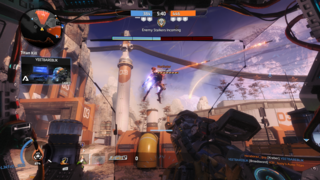
In Titanfall 2, the Titans are effectively power weapons and boosts. They're dressed in high calibre guns, lasers, and munitions launchers and bless you with extreme endurance. In matches, every player gets to wrap their fist around a power weapon because we all have individual meters that tick towards titanfall over time. The systems still respect our talent in that we can accelerate our charge towards titanfall by blowing away opponents, but because other players can't stop us earning our power weapon by killing us, some time in the Titan is guaranteed. Usually, quite a lot of time, given that the mechs have plenty of health. In another multiplayer, the Titan might constitute an unfair advantage, but when these machines are highly available to all fighters, the playing field remains level. You also can't use your Titan to steamroll other players to get your next power weapon. Your kills in the Titan fill a meter that progresses towards you earning a special attack, not another Titan.
4. Player-Titan Balance
Sometimes, we get halfway through a match of a multiplayer game, and we feel like we're sleepwalking through the same routes and routines. Titanfall transitions us between the pilot and Titan modes every few minutes, and this keeps the excitement from souring. It works because embarking into a Titan in this game changes a lot more than picking up a power weapon does in an orthodox FPS. In other games, you might sling a Chaingun over your shoulder and alter your mode of fire through it, but your movement model and other abilities such as grenade lobbing and sprinting will likely remain untouched. In Titanfall, when you switch into a mech, the ceiling on your top speed comes down, but your health and size bloom. Your tactical ability, sprint, grenade, jump, wall-run, and original weapon set are suspended, but in their place, you get a beefier main gun, an ordinance weapon, a defensive ability, a tactical ability, a boost, and a special.
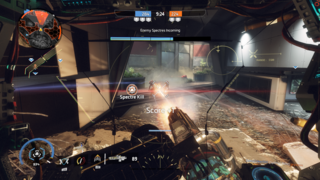
With the Titans crashing onto the dirt more frequently than typical power weapons, the complete transformation of anyone who nestles into a Titan's cockpit is necessary to keep the contests balanced. Balance manifests through trade-offs, and when you jump into or out of a Titan, you trade a lot. In many games, the power weapons are superior to the regular kit. Even if they require a deft hand to operate correctly, a skilled player with a Rocket Launcher or Sniper Rifle, will, on average, outshoot an experienced player with a Pistol or Machine Gun. In Titanfall, a Titan isn't strictly better than a pilot; they each have their fortes.
A lot of interactive entertainment pits fast, strong characters, against slow, weak ones, but the difference between the pilots and the Titans is more nuanced than that. Humans, on their own, aren't just faster than the Titans and capable of using traversal mechanics; they possess Anti-Titan weapons and can fit into the nooks and crannies that Titans can't. Those Anti-Titan guns are slow-acting, but you get a dynamic where a Titan will assuredly reduce a pilot standing in the middle of the street to a cloud of red spray, but a pilot can safely peek in and out of cover, making glancing blows at those metal giants. Mechs may rule the open spaces and make their drivers feel invincible, but as pilots, we have a quiet ferocity and can soar through the maps like birds. There are so many FPSs where the default loadout feels pretty good to rock, but we're all waiting with bated breath for those Rocket Launcher moments. The developer has to be conservative with giving you those bursts of formidability for the sake of balancing. Someone at Respawn thought "What if the game just felt empowering at all times?". Whether you're grappling to the tops of buildings and popping off an Assault Rifle or sitting in twenty-four-foot tall impenetrable power armour, you feel like you're in charge of the map, and you get to because the Titans and pilots are appropriately matched and have unique strengths.
5. A Battlefield Atmosphere
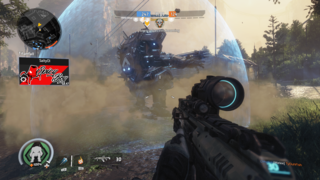
One revelatory discovery that the Battlefield series made was that when you unleash a lot of vehicles into the arena of combat, their sheer size and thunderous armaments create the atmosphere of a warzone. It's particularly effective because we know the bombings and plumes of dirt are not stage effects; they're part of the organic scrimmages of the match. Titanfall replicates that effect by allowing up to ten Titans on the map at a time, all unloading lasers, rockets, and much more. The appearance of AI soldiers on the field further stokes the fires of war. They take the environments from feeling like empty virtual arenas expressly designed for players to sites of actual armies clashing.
The arrival of Titans and troops wouldn't feel as rousing if it weren't for them dropping in from the sky, the resulting shockwave reverberating across the map. In a rare touch for the genre, Titanfall also understands that as each match is an action scene, it should build in extremity and scale as time goes on; you'd never see a scene in a film where the intensity stays at a constant level the entire time because that's not as thrilling. In Titanfall 2, every team starts without any Titans and are reinforced by lowly grunts. As time goes on, more and more players become able to use their boosts, and later, call down their mechs. Soon, everyone has landed a Titan at least once, and robotic soldiers storm onto the map to back the teams up. By the end of the match, aggressive "Reaper" bots with anti-Titan weapons stomp across the terrain.
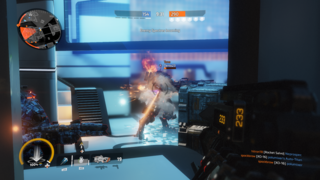
Such texture in the play is only possible through extraordinary balancing. When players are holding roughly the same cards, there's fewer gaps in ability that the designer needs to account for. However, in Titanfall, pilots can mix and match any part of their loadout, and there are seven different Titans, each with a multitude of unique powers. That's a lot of differences between players that most developers couldn't manage, but through some combination of resources and expertise, Respawn keeps them all in equilibrium.
6. Multiple Metrics of Success
In classical games, "succeeding" is synonymous with winning which can leave a lot of players feeling left out. At least 50% will come away with a loss on their record and not much else to show for it. Over roughly the past fifteen years, many video games have attempted to rectify this by including more definitions of success. Mostly, they do this through acknowledging individual success in addition to team success. Maybe your side didn't walk away with the gold, but you were the Most Valuable Player, or you racked up a high K/D. Overwatch is an example of modern games being very forthcoming with such statistics, announcing who did the most healing, the most damage, got the play of the game, etc. Even in a modern multiplayer game where you faltered in all categories, you probably still contributed to a persistent metric of success like your XP, loot, or achievements. Titanfall 2 incorporates many of the boilerplate indicators of personal success such as listing the top 3 players for each match, featuring levelling systems, and including unlockables. However, this title goes to particular lengths to deemphasise the outcome of the competition, providing more reasons to feel like you're doing swimmingly in yourself.
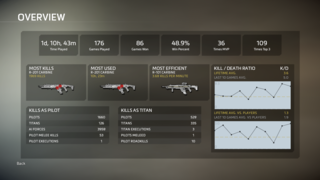
For example, its post-match scoreboards don't display how many times you died in a match, only the number of kills you achieved. It makes players feel good about their performance by showing them only a measurement of success and not one of failure. Audience members might otherwise feel dejected because stats like their kill numbers don't stack up to their opponents', but Titanfall 2 keeps all profiles private, meaning that players can't make that comparison and also aren't stressed out by social judgement of their long-term stats. Of course, users often still want some competitive metric, so there is an increasing number of games like Titanfall 2 getting released which compare current player stats to their previous records rather than to the stats of the player base overall. E.g. Some systems won't identify how many headshots you got in that match compared to the rest of your team; they check how many headshots you got compared to your personal best. Again, Overwatch loves doing this.
Titanfall 2 follows this approach by tracking the number of times you placed in the top 3 and were MVP as hard integers rather than percentages. Additionally, it features K/D and "Time Alive" graphs that don't use a 0 as a baseline, but instead, use your average in each category. Your competition isn't all Titanfall 2 players as much as it is the past you, and if you play regularly, you should keep surpassing past you with a reliability that you couldn't beat other players. Titanfall's developers also find a way to keep everyone feeling like they have a boastworthy K/D. In most games, K/D is zero-sum. For one player's K/D to increase, another's must fall because a kill on one person's sheet is a death on another's. This means that a negative kill-to-death ratio tars about half of the players. Titanfall 2 avoids this shaming by including kills on the AI in the K/D ratio. Soldier AI drops at the sight of a gun so that most players will come away with a K/D in the black. No debt of deaths has to appear on anyone's permanent log because all those failures are soaked up by computer-controlled characters.
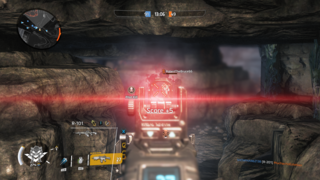
Titanfall 2 filling out the battlefield with break-away AI fighters also means that even if the player can't find opponents on the map right now, or else, isn't skilled enough to fell them, they can still best targets and increase the team's score. In another sense, the minions are something to do between the skirmishes with other players; they're like the coins in a Mario game that thread you along to the next platforming section or enemy. I stress that Titanfall 2's tilt towards internal comparisons of success over external comparisons isn't one that's going to please all users. Players who go hardcore into the sport of these games will often want to see their dominance of the competition rewarded with astronomical K/Ds, high MVP percentages, etc. They also crave stats as guiding stars by which they can tactically navigate. Titanfall is not "improving" how winning is framed but is providing a framing that pleases the masses more than the pros.
Finally, each game of Titanfall 2 offers losers a reprieve through the epilogue wherein fighters are capped at one life and must escape to a dropship while the opposing team tries to intercept them. You don't always evacuate, and so sometimes experience a kind of "double loss" where you can't get the most points and can't leave the hot zone. However, with the epilogue, a good player on a bad team might not be able to win the match, but they can often evacuate, and nothing is lost if they can't. Overall, the feature gives you more conciliatory exits to matches.
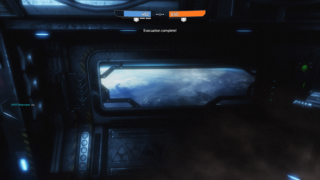
The epilogue is also a burst of tension that tops off the play. Shooters that give us a single life like PUBG and Counter-Strike are revered by their fans due to their high stakes. But for their critics, an inability to respawn is excessively harsh and a lot of time spectating while everyone else continues to participate bores them to tears. The epilogue ushers in all the suspense of the one-shot shooter without severely punishing anyone who dies: those players don't lose the round, they just don't get to extract. And because the epilogue is only a phase of play that caps off a regular match, participants aren't going to spend round after round sitting on the bench while better shots do all the work.
Conclusion
There's an old saying that if it isn't broke, don't fix it, perhaps popularised by rashes of failed experiments in upgrading various systems. However, progress in any field is about improving on the acceptable as much as erasing the unacceptable, and Titanfall 2 is exemplary of that. The FPSs that Titanfall 2 learns from were sublime, and yet, it was still worth Respawn thinking about how they could further distil the positives of those experiences and drain them of the negative. For their efforts, the studio got a game where the single-player neatly aligns play with environment and story, and the multiplayer empowers more equally and more frequently. Thanks for reading.
11 Comments